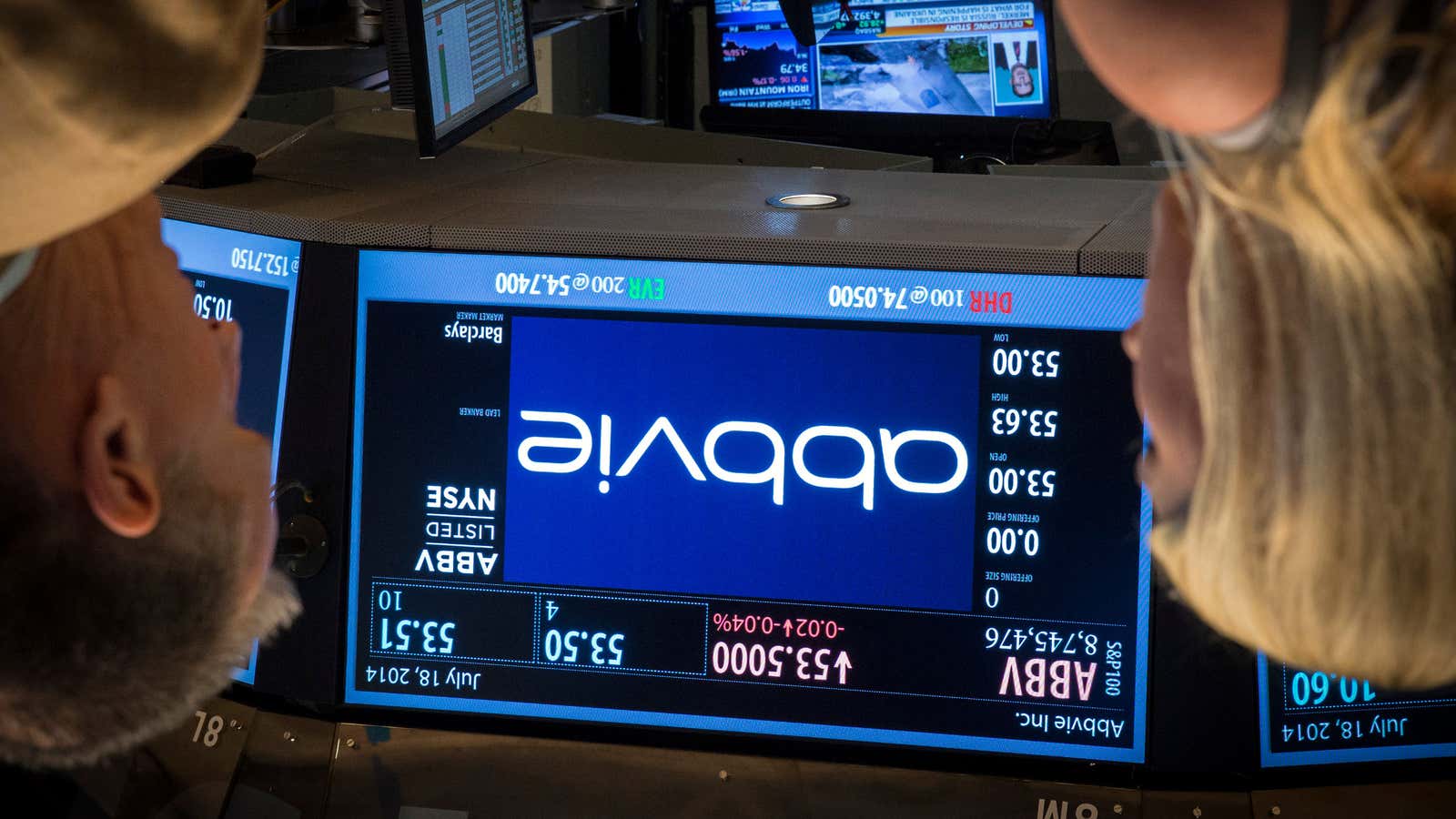Among CEOs of US companies, it’s all the rage to buy a foreign competitor and shift headquarters overseas, a move that allows firms to take advantage of lower taxes abroad and shift profits out of the US.
American lawmakers aren’t exactly thrilled about how these “tax inversions” erode the US tax base. But executives aren’t going to stop taking steps to increase shareholder value until the law changes—even if some shareholders might have to pay a short-term price now and accept a deeper cut in the future.
US law regards a tax inversion as a stock sale, seeing it as the transfer of a company’s US assets to a foreign version of itself. Therefore, shareholders must pay the US government taxes on the gains in share price when the tax inversion occurs, just as they would had they actually sold the stock. For instance, if you own shares of AbbVie, Chiquita or Medtronic—three companies that just wrapped up tax inversions—come next April, you’ll be taxed on capital gains incurred. Of course, if that stock is held in a tax-free retirement account like a 401(k), or if it was bought at a higher price, there is no tax.
While an appreciated asset is a good thing, stockholders may be surprised by a higher tax payment, says Suzanne Shier, the chief tax strategist for Northern Trust. That’s especially true if the tax inversion ups their investment income past the threshold—more than $200,000 for an individual—beyond which they also must pay a 3.8% tax to fund Medicare.
The fact that inversions are treated as sales isn’t an accident: It’s an example of an earlier attempt to make inversions less tempting. Since most Americans own stock through retirement plans, shareholders affected by these provisions are probably a minority. But these rules also offer a preview of what investors will see if the US government ups the penalties for tax inversions and the many other methods US multinationals use to keep their tax payments far below the US statutory rate of 35%.
Though the recent tax inversion craze reflects the common corporate assumption that it will be a long time before the US government revises its tax code, says Shier, it’s also putting more pressure on lawmakers to act. The Treasury department is now looking for executive actions President Obama could take to thwart the practice without needing Congress to sign off.
While it’s possible that Congress will simply block most corporate inversions, perhaps by raising the requirement for foreign ownership from 20% to 50%, a standalone bill is unlikely to pass as long as Republicans insist that tax reform be done in a single overhaul. That sort of effort, likely years in the future, is expected to result in a lower overall tax rate for corporations, but revenue will have to be made up elsewhere.
The most efficient way to do so will likely involve increasing taxes on capital gains and dividends, just as the 1986 tax reform signed by President Ronald Reagan did. Rather than focus on the profits corporations make—and the tricky business of allocating them by jurisdiction in a world where companies supply chains and sales routinely touch dozens of countries—economists think (pdf) that taxing the profits they generate for their shareholders will make for easier collection and fewer economic distortions.
